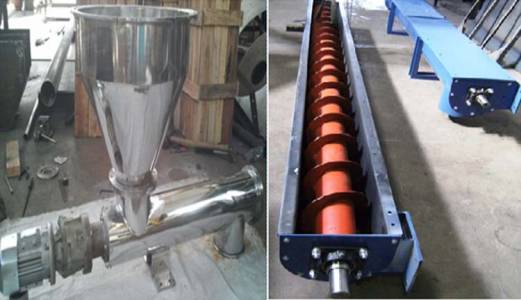
Screw conveyors, also known as auger conveyors or spiral conveyors, are highly versatile and efficient machines designed for the gentle and reliable transport of a wide range of bulk materials. Whether you need to move powders, granules, chips, or even small objects, a screw conveyor provides a cost-effective and reliable solution for various industrial applications.
Key Features and Benefits:
Applications:
Screw conveyors find extensive use across numerous industries, including:
Choosing the Right Screw Conveyor:
Selecting the appropriate screw conveyor requires considering several factors:
Contact us today to discuss your specific requirements and let our experts help you choose the optimal screw conveyor solution for your needs.